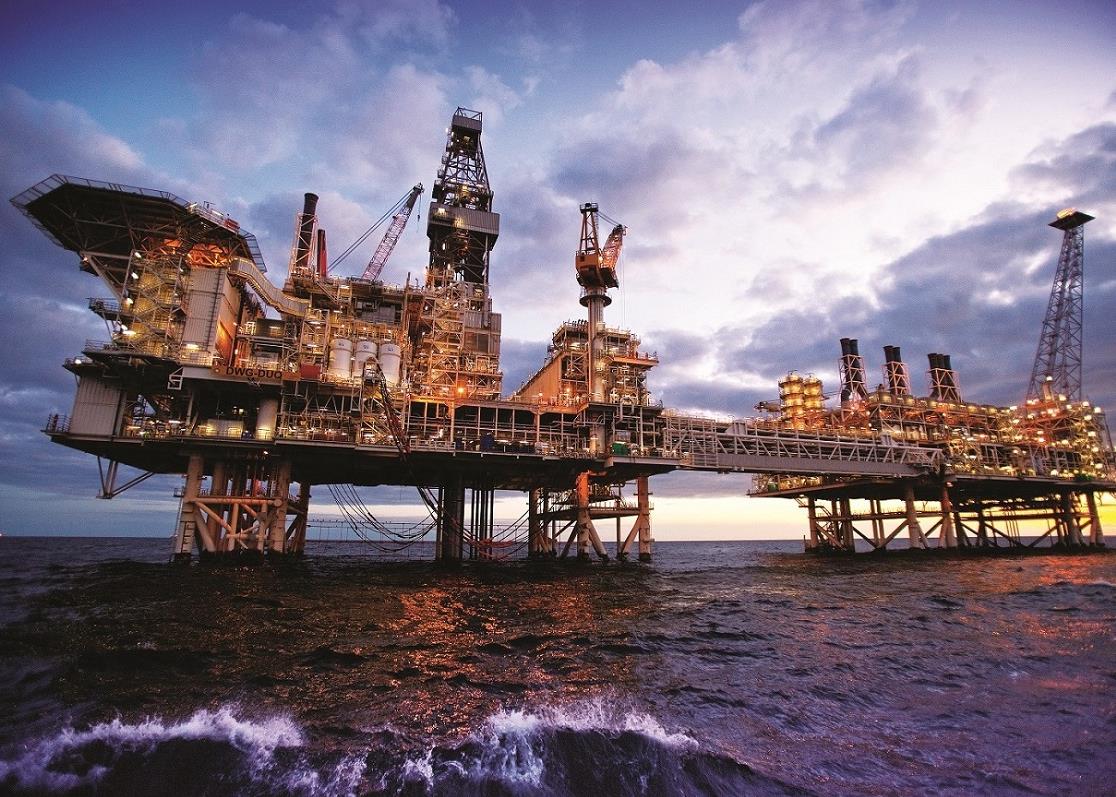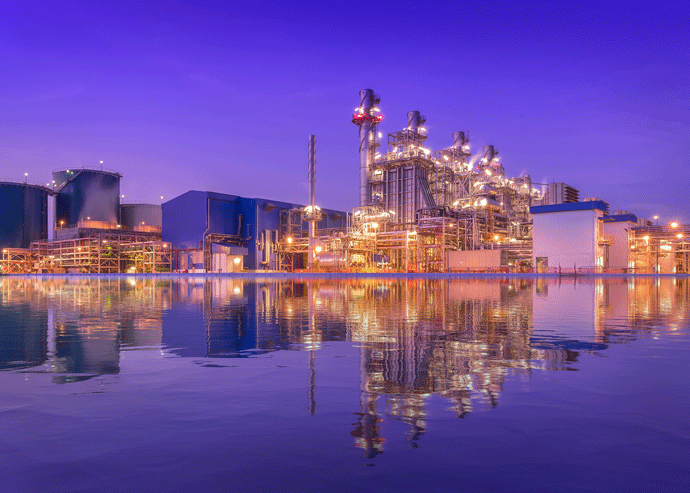
THINGS are getting better and better for the UAE's banks. Last year's crop of results had all but a few institutions reporting increases in profits, and bankers expect this year to be another good one.
Despite the large number of banks 47 in a country of just over two million people there still seems to be enough business to go round in the Gulfs most buoyant economy.
'Since 1992 I've been hearing bankers say that this is going to be the last boom year, and then each year they say 'Oh well, I was wrong',' says one observer of the industry.
The UAE economy is growing without hiccups, fuelled by Abu Dhabi's oil revenues and trade flows through Dubai. Gross domestic product (GDP) grew by 6.6 per cent in 1995, and this was reflected in an expansion in bank lending. The total assets of commercial banks in the country grew by 5.4 per cent to AED 180,892 million ($49,203 million) the biggest single factor in this increase was a 12.3 per cent rise in credits to the private sector which stood at AED 71,386 million ($19,417 million) at the end of 1995.
So far, the signs are that 1996 will also be kind to the banks. The oil price outlook is uncertain, but after a bullish first half prices seem unlikely to slide as far as some pessimists had predicted. Bankers are optimistic that govemment spending at current levels is secure. The trading economies of Dubai and Sharjah are in good shape, with the growing markets of the former Soviet states making up for a decline in trade with traditional buyers in Iran.
'All sectors of the economy have been doing exceptionally well. If the situation prevailing in the last six months continues, I think the banks are going to have another bumper year,' says Khalifa Hassan, chief executive of Abu Dhabi Commercial Bank (ADCB). 'Trade is a very bright area, the service industries are also doing well and the real-estate sector will continue to be excellent.'
'The economy is still relatively buoyant. There's a lot of investment going on and it's quite broad-based, not just real-estate and hotels,' says a senior official at another leading local bank. 'I think all the banks will be at or above 1995 (profits), which was the best year the banking system's ever had.'
Oil income remains the main motor of economic activity in the UAE as a whole, though the trading centre of Dubai in particular has done much to lessen its reliance on oil necessarily so, as its reserves are running down fast. A recent survey of the UAE's banking industry by US ratings agency Standard and Poor's (S&P) notes that any serious downturn in the oil price would inevitably put strains on banks' loan portfolios.
However, S&P notes that economic diversification, particularly in Dubai, has reduced the potential impact of an oil price fall. 'In addition, much tighter large exposure regulations, combined with robust capital bases, means that banks will go into any downturn in much better shape than was the case in the mid-1980s,' the agency says. A number of banks, hit by bad loans in the 1980s, were merged to create two new banks which are now leading institutions in the industry, Dubai-based Emirates Bank International (EBI) and ADCB in Abu Dhabi.
Retail aggression
As in the past, the absence of a formal stock market and a lack of lending opportunities in the corporate sector is pushing some banks into competing aggressively for retail business. Bankers are divided over whether this is a good or a bad thing. Some say they are reluctant to sanction large numbers of new personal loans or credit cards. Others are persuaded that the risks are acceptable as they are spread across a broad spectrum of small borrowers. And, such risks as are attached to this lending are more than justified by the lucrative returns.
'If this trend of financing greater multiples of salary continues, it could get overheated,' says one proponent of the cautious view, Standard and Chartered's regional chief executive Graham Dodd.
A senior official at an Abu Dhabi bank concurs. 'There's the problem that people will build up an unsustainable level of debt, to the extent that it becomes a political problem.'
Others are sanguine, calculating that the aggregate risk is quite low as long as no sudden calamity hits the economy. If there is a downturn it should hit corporate borrowers before individuals, argues MashreqBank chief executive Abdel-Aziz al-Ghurair.
'If there is any pressure on the economy, the first people to take a beating will be businesses. As a bank lending to retail customers, I will get the signal ahead of anybody else,' says Al-Ghurair.
Quality risk
MashreqBank, the fourth largest local bank in asset terms, relies on the quality of its risk analysis and a liberal provisioning policy to avoid being hit by a mass of bad loans. 'We're thinking of hiring a psychologist and a mathematician (to work out credit risks),' AlGhurair adds.
Nonetheless, this exposure to the retail market was one of the caveats raised by another influential US ratings agency, Moody's Investors Service, earlier this year when it rated MashreqBank's deposits at below investment grade. 'Moody's believes that the rapid growth which has taken place in personal lending could lead to problems for the bank if the economy falters,' it said.
'I really don't understand,' says Al-Ghurair. 'Most banks in the world are looking to diversify and expand retail lending.'
Moody's also rated National Bank of Abu Dhabi, ADCB and EBI. The agency caused disquiet among local bankers because its praise for aspects of individual banks was tempered by ratings which were felt to be low by emerging market standards, implying a pessimistic view of systemic risk in what Moody's calls 'a difficult, limited market.'
Some new opportunities are arising in other sectors. The UAE's emirates are working to build up their non-oil industries, providing new lending business for the banks. 'What most people are shouting about at the moment are small projects of up to AED 100 million ($27 million) in Jebel Ali' says a foreign banker, referring to Dubai's Jebel Ali free industrial zone.
The other long-awaited development is the establishment of an official stock exchange to replace the existing unofficial over-thecounter market which is small, illiquid and far from transparent. The exchange is expected to be set up some time during 1997, and a number of banks are building up their equity-related expertise in anticipation.
The multiplicity of banks in a small market is a theme that frequently comes up in conversation with bankers in the UAE. Some senior executives, both local and foreign, say the sector would be more efficient if there were fewer banks. 'I know people would throw up their hands in horror, but personally I think there should be two or three,' says one general manager.
However, pressure from the central bank for mergers appears to have fallen away in recent years. The most likely candidates for such treatment were concentrated in Sharjah, where a government debt problem weighed heavily on the performance of the banks.
The debt issue has been resolved, the banks are doing better and the talk of mergers has receded for now, Sharjah bankers say.
The central bank earns plaudits from many bankers for what they describe as its sensible approach to regulation, although there was some grumbling about new lending limits in 1993 and measures to make banks raise their capital. 'The central bank is headed by a very intelligent, pragmatic man who adds value, which can't be said for all central banks,' says one foreign banker. The object of his admiration, governor Sultan al-Suweidi, is an experienced banker himself who headed ADCB before moving to the central bank in 1991.
In the last year the central bank has issued new instructions to regulate the activities of finance companies and measures aimed at damping speculation in shares on the UAE's unofficial stock exchange. Bankers say it is carefully monitoring the recent burst of consumer lending, but if it feels things are getting out of hand, the response is as likely to be behind-the-scenes pressure on individual banks as directives to the sector as a whole.
One potentially fraught area is the proportion of UAE nationals employed in banks. A committee of representatives from the banks has been looking at ways to bring more nationals into the system partly, some say, to forestall the possibility of banks being obliged by law to hire more nationals.
But others say this is not currently the central bank's style: issuing directives on the percentage of nationals to be employed, as occurred in neighbouring Oman, seems unlikely for now. One prominent local banker notes that the industry attracts more women than men, though as elsewhere they may have to juggle career and family.
Suburban growth
Many local banks have plans to add to their branch networks in 1996. This reflects changes in the way the population is distributed around the UAE: suburbs have expanded around the main centres and satellite towns spread along the main highways.
'You had a situation where the distribution of bank branches got frozen at the population patterns of the late 1970s,' says one Abu Dhabi banker. 'Now networks are being rearranged and in some cases expanded.'
But at the same time, banks are creating more electronic links with each other. The central bank's Switch network, which connects the automated teller machine (ATM) networks of different banks, started up on 13 July. Six banks are involved so far Abu Dhabi Commercial Bank, British Bank of the Middle East (BBME), Emirates Bank International (EBI), MashreqBank, National Bank of Dubai and Standard Chartered. Another 21 banks have indicated that they want to join the network.
In other areas, most of the local banks are cautious and slow to innovate, seeing their role as providing traditional banking services to the federal government, the emirate governments and the country's traders and workers.
A few are looking to carve out new niches for themselves. EBI is building up its syndicated loan business (see page 11), while MashreqBank is attempting to distinguish itself from the competition by developing high-quality customer services. In the main, the twin pillars of the industry remain government-related business and financing for trade and industry. On past evidence this should be more than enough for the UAE's banks, and the sector seems likely to flourish in tandem with the economy as a whole.
You might also like...

Adnoc Offshore awards Upper Zakum contract
17 April 2024

Oman awards Batinah coastal road contract
17 April 2024

Oman appoints Al Khuwair Downtown project manager
17 April 2024
A MEED Subscription...
Subscribe or upgrade your current MEED.com package to support your strategic planning with the MENA region’s best source of business information. Proceed to our online shop below to find out more about the features in each package.





